We may not have the course you’re looking for. If you enquire or give us a call on 01344203999 and speak to our training experts, we may still be able to help with your training requirements.
We ensure quality, budget-alignment, and timely delivery by our expert instructors.
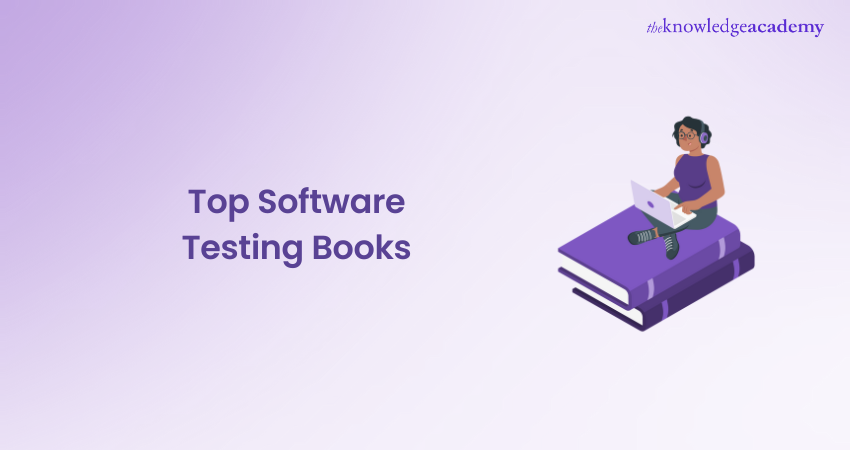
Ready to elevate your Software Testing skills and career? Imagine having a treasure trove of industry wisdom at your fingertips. With so many Software Testing Books out there, how do you find the ones that truly ignite your passion and sharpen your expertise? These books aren’t just pages filled with technical jargon; they’re your gateway to understanding the art and science of testing.
In this blog, we’ve carefully selected some of the best Software Testing Books for both beginners and professionals. Each book is chosen for its ability to inspire, challenge, and equip you with practical knowledge that you can immediately apply. Get ready to dive into a world of insights that will transform the way you approach Software Testing.
Table of Contents
1) Best Software Testing Books to read
a) Buddha in Testing: Finding Peace in Chaos
b) Lessons Learned in Software Testing
c) Software Testing Techniques, 2nd Edition
d) The Art of Software Testing, 3rd Edition
e) Perfect Software: And Other Illusions About Testing
f) How Google Tests Software
g) The Hacker Playbook 2: Practical Guide to Penetration Testing
h) The Way of the Web Tester: A Beginner’s Guide to Automating Tests
i) A Practitioner’s Guide to Software Test Design
j) The Complete Software Tester: Concepts, Skills, and Strategies for High-Quality Testing
2) Conclusion
Best Software Testing Books to Read
The following are the best books for Software Testing that will enhance your skills and deepen your understanding of the field.
1) Buddha in Testing: Finding Peace in Chaos
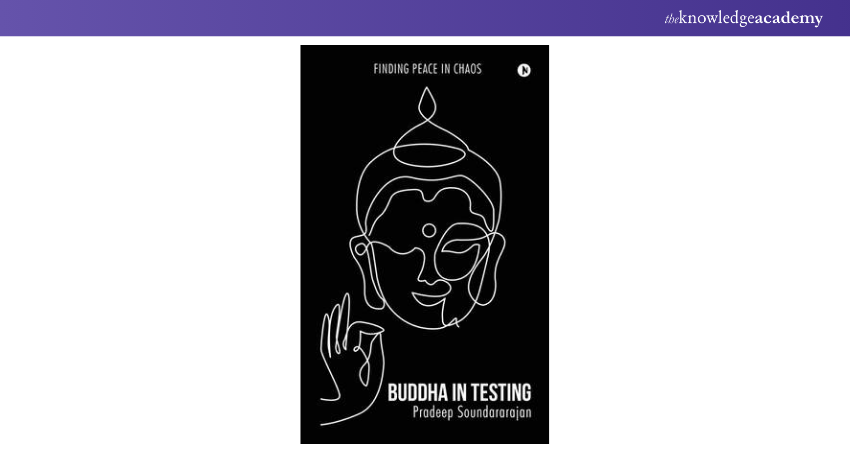
Buddha in Testing: Finding Peace in Chaos (2020) by Pradeep Soundararajan: Published in 2020, this book uniquely combines Buddhist principles with the challenges of Software Testing. It offers a perspective that encourages testers to maintain calm and focus amidst the chaos often encountered in their work.
By integrating mindfulness, the book provides strategies for personal and professional growth, emphasising the importance of inner peace in a demanding field. It’s particularly valuable for testers who face high-pressure situations, offering tools to navigate stress and improve mental well-being. Beyond technical advice, the book blends technical advice with mindfulness practices, offering a balanced approach to Software Testing and personal tranquillity.

2) Lessons Learned in Software Testing: A Context-Driven Approach
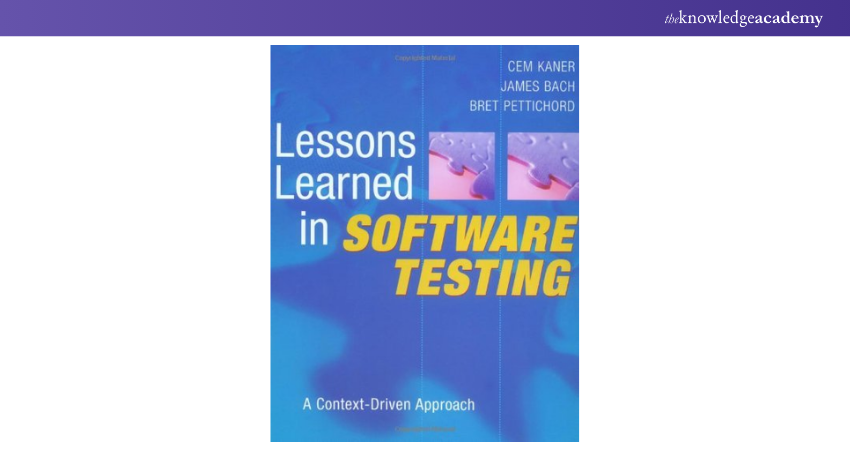
Lessons Learned in Software Testing: A Context-Driven Approach (2001) by Cem Kaner, James Bach, and Bret Pettichord: Published in 2001, this book is a foundational text in Software Testing. It introduces the context-driven approach, where testing methods are adapted to the specific needs of each project. The authors provide practical lessons from their extensive experience, making the content relevant to testers at all levels.
The book encourages critical thinking and problem-solving, helping testers navigate the complexities of different testing environments. With its emphasis on real-world application, this book is essential for anyone serious about advancing their Software Testing skills. It also helps in understanding how to tailor testing strategies effectively.
3) Software Testing Techniques, 2nd Edition
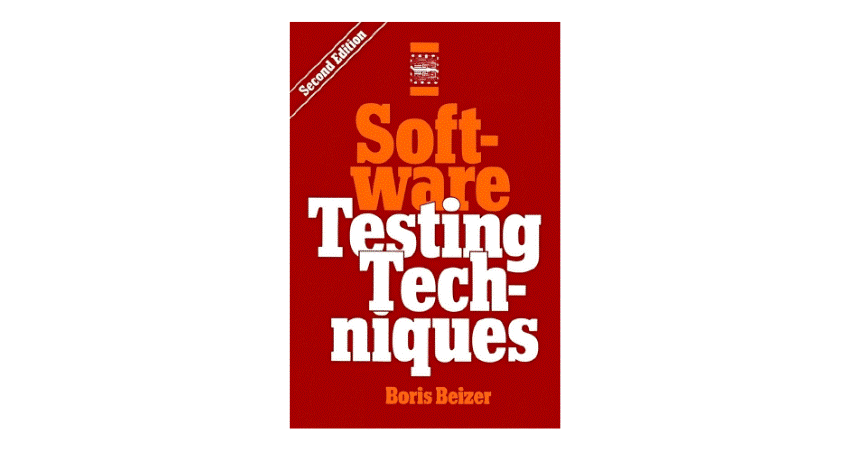
Software Testing Techniques, 2nd Edition (1990) by Boris Beizer: Published in 1990, this second edition builds on the foundational concepts introduced in the original 1983 edition. The book explores advanced Software Testing techniques, focusing on test case design, debugging, and error analysis. Beizer’s work is detailed and methodical, offering a comprehensive guide for testers aiming to deepen their technical expertise.
The second edition includes updated Software Testing Methodologies, making it a critical resource for those in the evolving field of Software Development. This book remains an essential read for testers looking to enhance their technical skills and understanding of Software Testing processes.
4) The Art of Software Testing, 3rd Edition
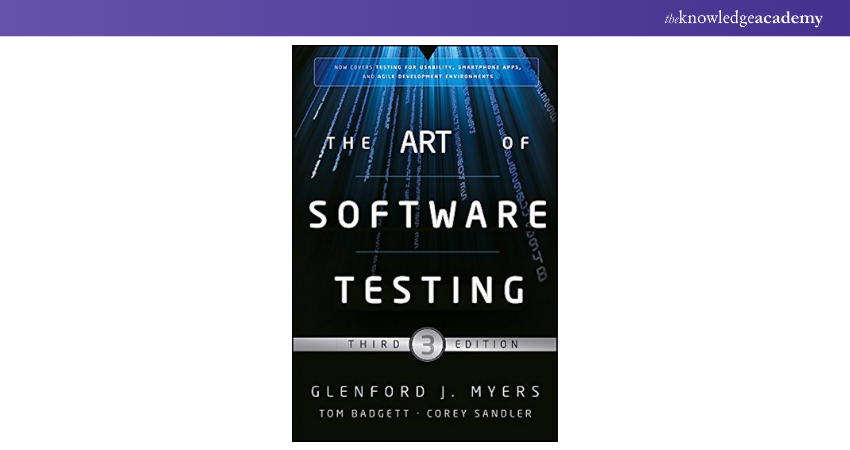
The Art of Software Testing, 3rd Edition (2012) by Glenford Myers, Tom Badgett, and Corey Sandler: Published in 2012, this third edition updates and expands on the original concepts introduced in 1979. The book remains a cornerstone in Software Testing, covering essential strategies like error detection and prevention.
Myers and his co-authors integrate modern practices into the classic framework, ensuring relevance in today’s testing environment. The book provides practical guidance on effective testing techniques, making it a must-read for both novice and experienced testers. Its blend of timeless principles and updated strategies makes it an enduring resource in the field of Software Testing.
5) Perfect Software: And Other Illusions About Testing
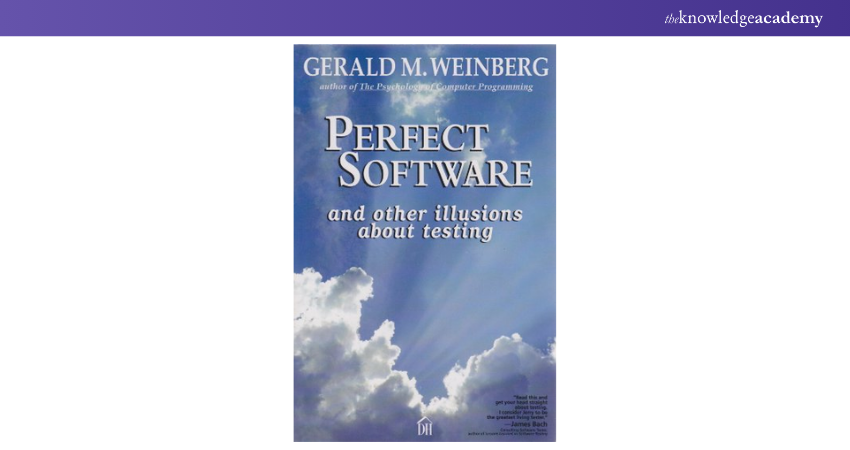
Perfect Software: And Other Illusions About Testing (2008) by Gerald M. Weinberg: Published in 2008, this book challenges the idea of achieving perfect software through testing. Weinberg argues that striving for perfection is unrealistic and instead focuses on practical strategies for improving software incrementally.
The book offers a refreshing perspective, encouraging testers to embrace imperfections and set realistic goals. Weinberg’s writing is insightful and often humorous, making complex ideas accessible. This book is ideal for testers looking to enhance their approach to software quality assurance by understanding the limitations and possibilities within the testing process. It’s a thought-provoking read for anyone in the software industry.
6) How Google Tests Software
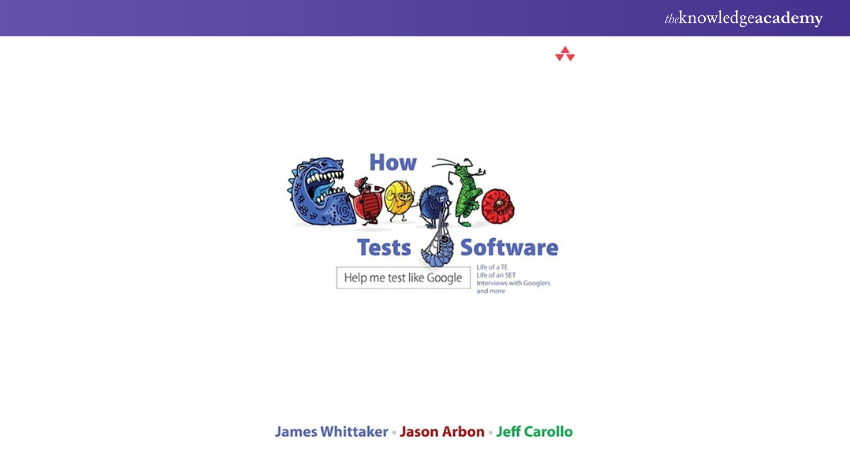
How Google Tests Software (2012) by James A. Whittaker, Jason Arbon, and Jeff Carollo: Published in 2012, this book provides an inside look at Google’s innovative Software Testing practices. The authors, all experienced Google engineers, share their insights on ensuring software quality at scale.
The book emphasises automation, scalability, and rapid feedback loops as key elements in Google’s testing strategy. It offers practical advice for implementing similar practices in other organisations, making it invaluable for testers and developers alike. This book is essential for anyone interested in learning how a leading tech company maintains high standards in Software Development and testing.
7) The Hacker Playbook 2: Practical Guide to Penetration Testing
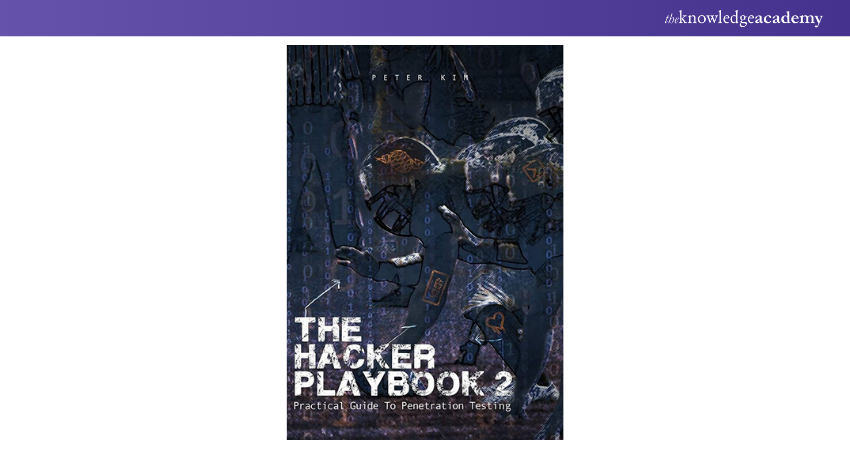
The Hacker Playbook 2: Practical Guide to Penetration Testing (2015) by Peter Kim: Published in 2015, this second edition is a hands-on guide for penetration testers. The book builds on the original by introducing new techniques and tools for ethical hacking. Peter Kim provides step-by-step strategies for identifying and exploiting vulnerabilities, making it essential for cybersecurity professionals.
The book’s practical approach and real-world examples make complex concepts accessible to both beginners and experienced testers. With its clear instructions and updated content, this book is a valuable resource for anyone looking to improve their skills in penetration testing and cybersecurity.
If you are looking to further your career in software and security testing, look no further than our ISTQB Advanced Level Test Manager Course!
8) The Way of the Web Tester: A Beginner’s Guide to Automating Tests
The Way of the Web Tester: A Beginner's Guide to Automating Tests (2016) by Jonathan Rasmusson: Published in 2016, this software test automation book serves as an accessible introduction to automating web tests. Rasmusson, an experienced Software Developer, guides readers through the basics of automated testing, from setting up environments to writing test scripts. His clear and practical advice makes the book an excellent starting point for beginners in test automation.
It’s also useful for testers looking to enhance their web testing skills with automation. The book's clear, practical approach helps readers quickly apply concepts to real-world scenarios, making it invaluable for testers.
Become an automation testing expert with TestComplete - start your journey with our Automation Testing Using TestComplete Training and earn your certification!
9) A Practitioner’s Guide to Software Test Design
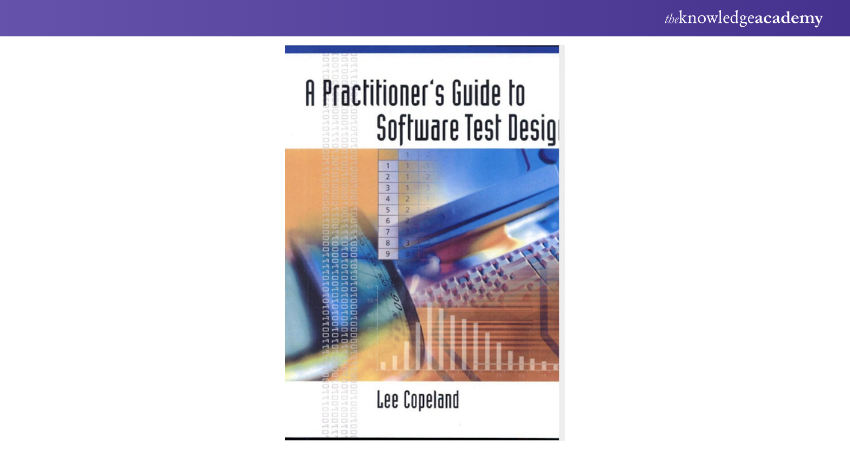
A Practitioner's Guide to Software Test Design (2002) by Lee Copeland: Published in 2002, this book is a comprehensive guide to software test design techniques. Copeland covers essential methods like equivalence partitioning, boundary value analysis, and decision tables. The book offers practical, step-by-step instructions for improving test coverage and effectiveness.
It’s well-organised and accessible, making it suitable for both novice and experienced testers. This guide is particularly valuable for those looking to refine their test design skills and ensure thorough testing of software applications. Copeland’s work remains a key resource in the field, helping testers deliver high-quality software products.
10) The Complete Software Tester: Concepts, Skills, and Strategies for High-Quality Testing
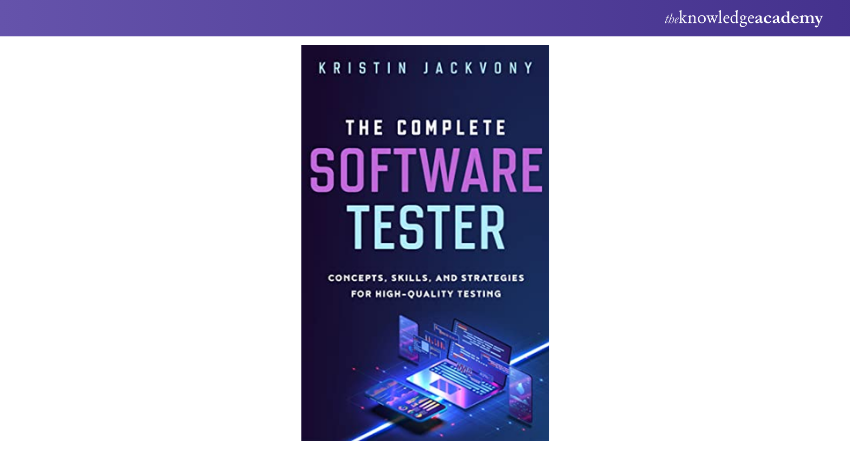
The Complete Software Tester: Concepts, Skills, and Strategies for High-Quality Testing (2021) by Kristin Jackvony: Published in 2021, this book serves as a comprehensive guide for software testers. Jackvony delves into essential concepts, skills, and strategies necessary for conducting high-quality testing.
The book is particularly beneficial for newcomers, offering clear explanations and practical examples that make complex testing concepts accessible. It also serves as an excellent refresher for experienced testers aiming to reinforce their foundational knowledge. This guide is designed to help testers at all levels ensure that their software meets the highest standards of quality, making it an invaluable resource for anyone involved in the field of Software Testing.
With our ISTQB Advanced Level Technical Test Analyst Course boost your skills as a Software tester today!
11) Explore It!: Reduce Risk and Increase Confidence with Exploratory Testing
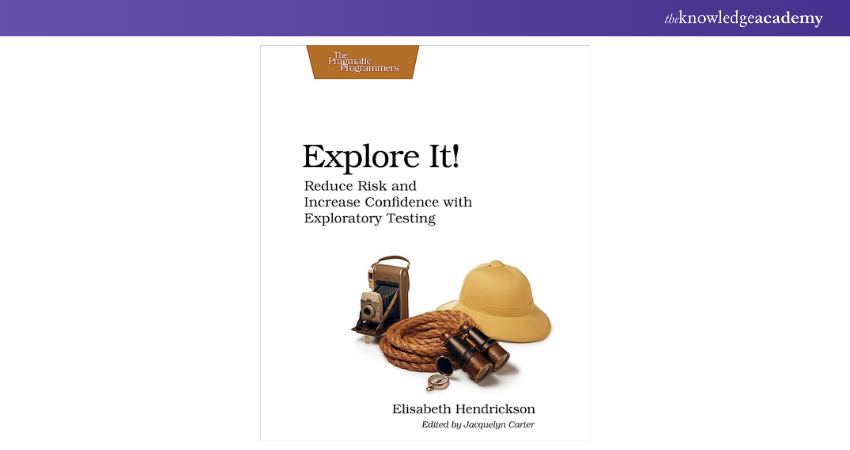
Explore It!: Reduce Risk and Increase Confidence with Exploratory Testing (2013) by Elizabeth Hendrickson: Published in 2013, this book is a deep dive into exploratory testing practices. Hendrickson provides practical Software Testing Techniques for reducing risk and increasing confidence in software quality through exploration and adaptability.
The book emphasises moving beyond scripted testing to a more dynamic approach that allows testers to discover unexpected issues. It’s a valuable resource for testers looking to enhance their skills and embrace a more flexible testing strategy. Hendrickson’s insights make this book a must-read for anyone interested in improving their exploratory testing capabilities and delivering higher-quality software.
12) Continuous Testing for DevOps Professionals: A Practical Guide from Industry Experts
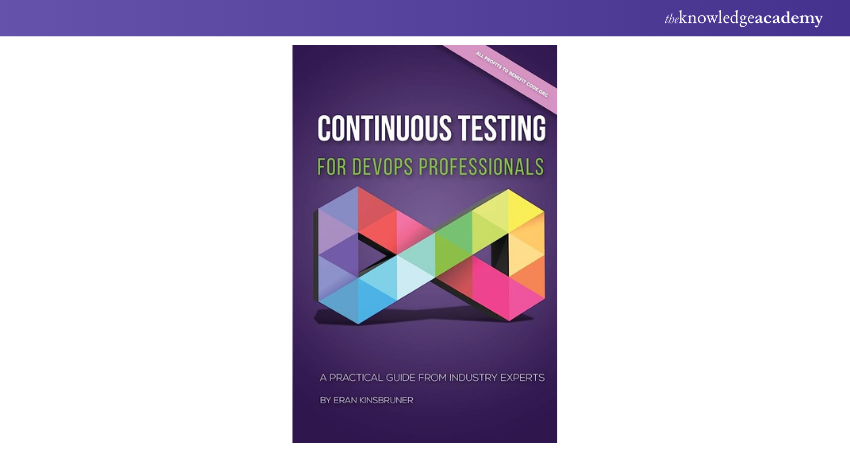
Continuous Testing for DevOps Professionals: A Practical Guide from Industry Experts (2018) by Eran Kinsbruner, Stephen Feloney, and others: Published in 2018, this book provides a comprehensive guide to implementing continuous testing in a DevOps environment. The authors, industry experts, offer detailed insights into integrating testing into the DevOps pipeline. They emphasise automation, rapid feedback, and collaboration as key elements for success.
This book is essential for testers and DevOps professionals looking to improve software quality while accelerating delivery times. With practical advice and real-world examples, it’s an invaluable resource for those aiming to adopt continuous testing practices effectively in their organisations.
Expand your skills as an Automation engineer with our ISTQB Advanced Test Automation Engineer Course today!
13) Foundations of Software Testing ISTQB Certification: 4th Edition
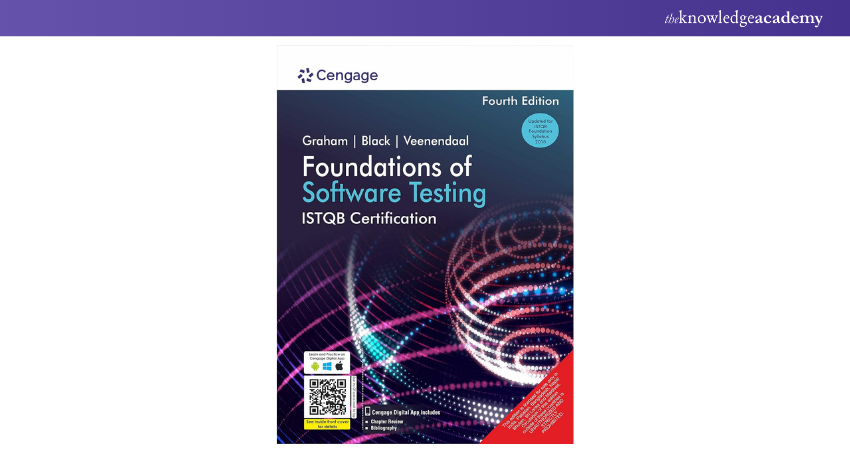
Foundations of Software Testing ISTQB Certification: 4th Edition (2015) by Dorothy Graham, Rex Black, and Erik van Veenendaal: Published in 2015, this book is a key resource for anyone preparing for the ISTQB certification. It covers foundational Software Testing concepts, including test design, execution, and management.
The authors provide clear explanations and practical examples, making it an essential guide for both novice and experienced testers. This book helps testers enhance their skills and prepare for the ISTQB exam, which is a significant milestone in their professional development. It remains an authoritative text in the field of Software Testing education and certification.
Kickstart your Software Testing career with ISTQB Software Testing Foundation Course - gain essential skills and certification for success!
14) Agile Testing: A Practical Guide for Testers and Agile Teams
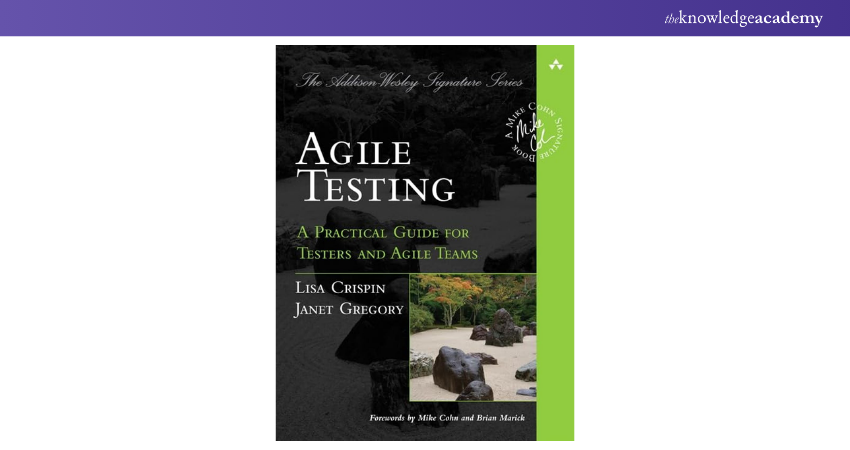
Agile Testing: A Practical Guide for Testers and Agile Teams (2008) by Lisa Crispin and Janet Gregory: Published in 2008, this book is a definitive guide to agile testing. Crispin and Gregory offer practical advice on how testers can contribute effectively to agile teams. They cover key practices such as continuous integration, test-driven development, and exploratory testing.
The book’s collaborative approach makes it essential for testers and agile team members looking to improve their testing practices and deliver high-quality software. With its emphasis on real-world application, it’s an invaluable resource for those involved in agile Software Development.
Enhance your agile skills with our ISTQB Agile Foundation Extension Course - master agile practices and boost your career today!
15) Java for Testers: Learn Java Fundamentals Fast
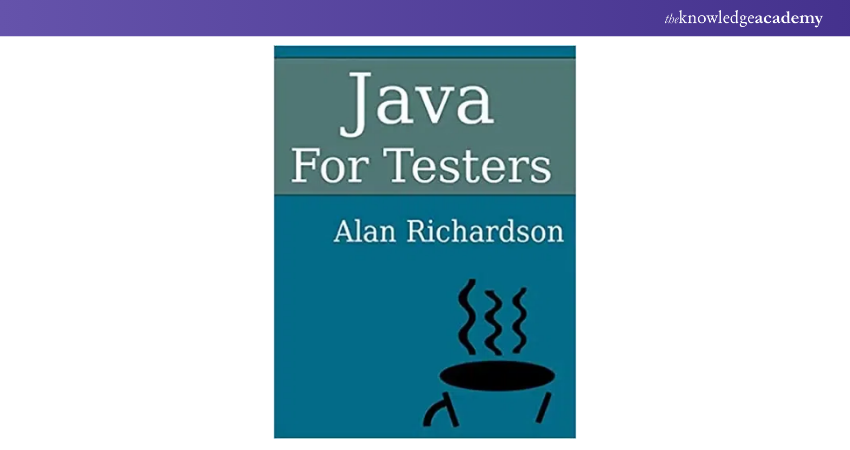
Java for Testers: Learn Java Fundamentals Fast (2014) by Alan Richardson: Published in 2014, this book is a focused guide to learning Java for software testers. Richardson offers a fast-track introduction to Java, concentrating on the concepts most relevant to testers.
The book is ideal for testers with little to no programming experience who want to quickly acquire Java skills. With clear explanations and practical exercises, it helps testers integrate Java into their testing work effectively. This book is a valuable resource for anyone looking to enhance their testing capabilities through programming, making complex concepts accessible and applicable.
16) Are You Smart Enough to Be a Tester: An Introduction to a Career as a Software Test Engineer

Are You Smart Enough to Be a Tester: An Introduction to a Career as a Software Test Engineer (2013) by Mukesh Sharma: Published in 2013, this book provides an engaging introduction to a career in Software Testing. Sharma outlines the essential skills and qualities needed to succeed as a software test engineer.
The book offers practical advice for those considering a career in testing, making it a valuable resource for anyone curious about the field. It’s particularly useful for newcomers who want to understand the challenges and rewards of working as a tester. With clear guidance and real-world insights, this book is an excellent starting point for aspiring software testers.
17) How to Break Software: A Practical Guide to Testing
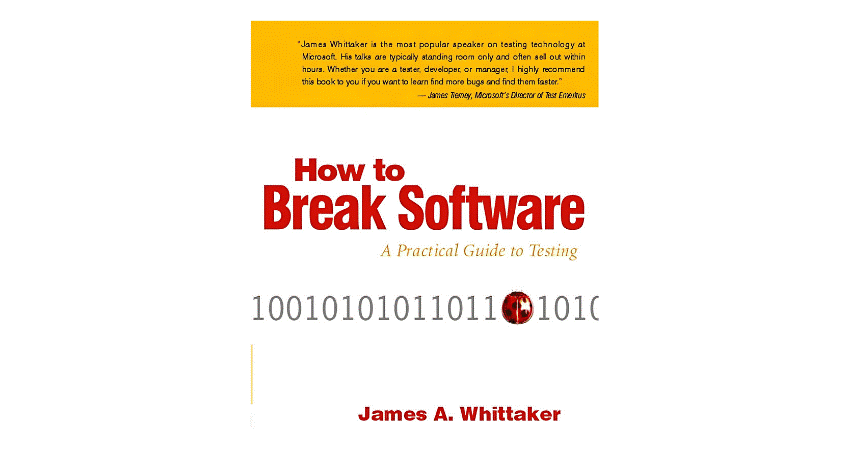
How to Break Software: A Practical Guide to Testing (2002) by James A. Whittaker: Published in 2002, this book is a hands-on guide focused on identifying and exploiting software vulnerabilities. Whittaker provides practical techniques for breaking software, making it essential for testers looking to improve their skills in finding and fixing defects.
The book offers clear examples and exercises that reinforce key concepts, helping testers master the art of effective Software Testing. It’s a valuable resource for those aiming to enhance their testing abilities and deliver more reliable software products through rigorous testing practices.
Take the next step in your career by mastering Software developer interview questions and give your best answers in your next interview.
18) Software Testing Career Package – A Software Tester's Journey from Getting a Job to Becoming a Test Leader!
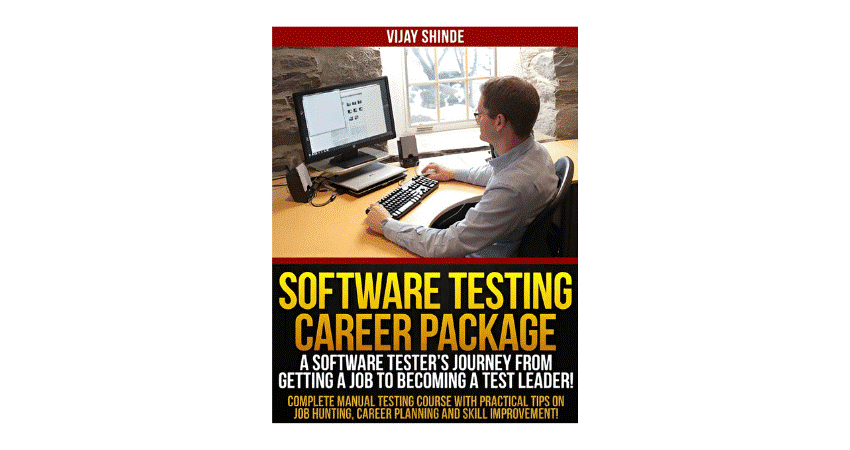
Software Testing Career Package – A Software Tester's Journey from Getting a Job to Becoming a Test Leader! (2014) by Vijay Shinde: Published in 2014, this book offers a comprehensive guide to building a successful career in Software Testing. Shinde covers everything from landing a job as a tester to advancing to leadership roles, providing practical advice and tips along the way.
The book is a valuable resource for testers at all stages of their careers, offering insights on how to navigate the challenges of the testing profession. It’s particularly useful for those aiming to achieve long-term success and leadership in Software Testing.
19) Effective Software Testing: 50 Specific Ways to Improve Your Testing
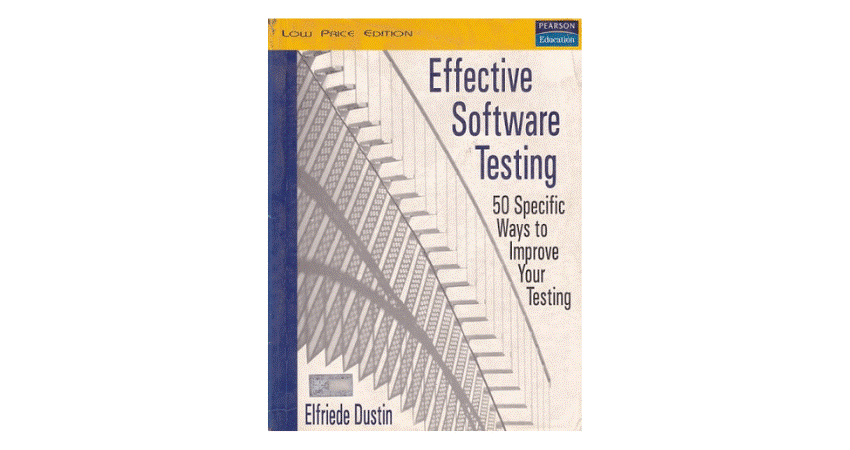
Effective Software Testing: 50 Specific Ways to Improve Your Testing (2002) by Elfriede Dustin: Published in 2002, this book offers practical advice on improving Software Testing processes. Dustin provides 50 specific techniques that testers can apply to enhance the effectiveness and efficiency of their testing efforts.
The book covers a wide range of topics, from test planning and design to execution and defect management. It’s particularly useful for testers looking to implement quick wins in their testing practices. With its actionable insights, this book is an excellent resource for both novice and experienced testers aiming to deliver higher-quality software.
20) Software Test Automation – Effective Use of Test Execution Tools
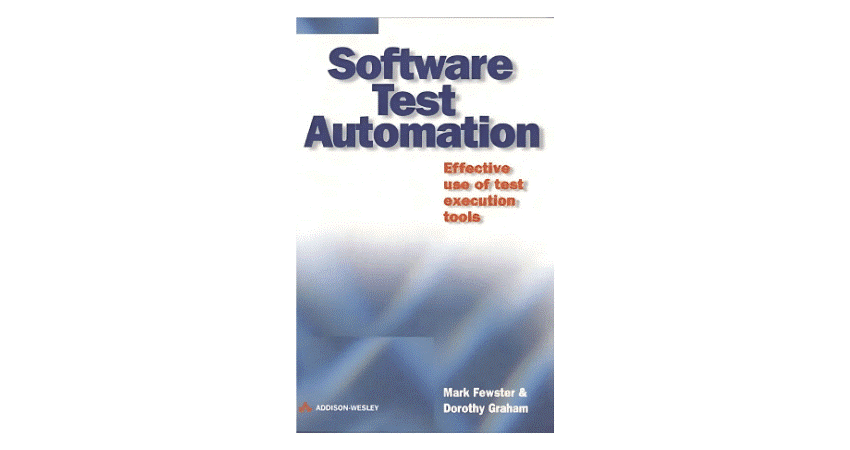
Software Test Automation – Effective Use of Test Execution Tools (2001) by Mark Fewster and Dorothy Graham: Published in 2001, this book is a practical guide to software test automation. Fewster and Graham explore the effective use of test execution tools, covering both the technical and managerial aspects of automation.
The authors provide insights into selecting the right tools, implementing automation strategies, and measuring their effectiveness. This book is essential for testers and managers looking to enhance their test automation processes. It offers real-world examples and practical advice, making complex automation concepts accessible and applicable to modern testing environments.
21) The Just Enough Software Test Automation
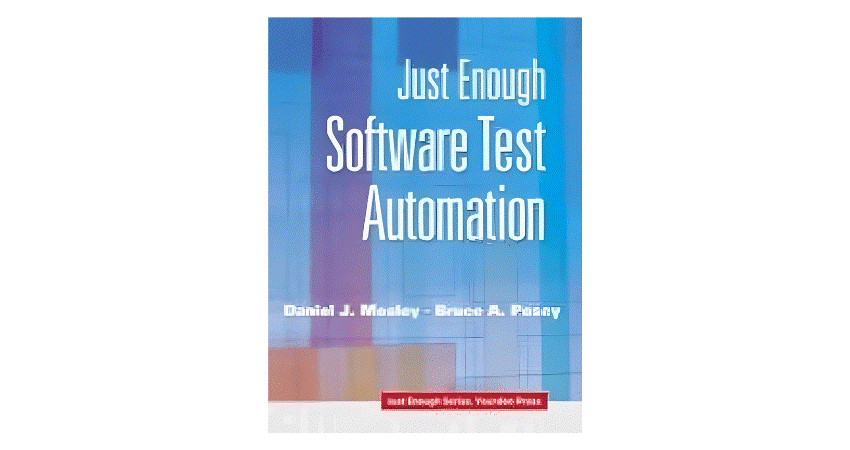
The Just Enough Software Test Automation (2002) by Daniel J. Mosley and Bruce A. Posey: Published in 2002, this book offers a balanced approach to software test automation. Mosley and Posey focus on providing just enough automation to meet testing goals without overcomplicating the process.
The book emphasises the importance of maintaining a practical perspective when implementing automation strategies. It provides step-by-step guidance on how to achieve effective automation without excessive costs or effort. This book is ideal for testers and managers who want to integrate automation into their testing processes efficiently and effectively.
22) Managing the Testing Process: Practical Tools and Techniques for Managing Hardware and Software Testing
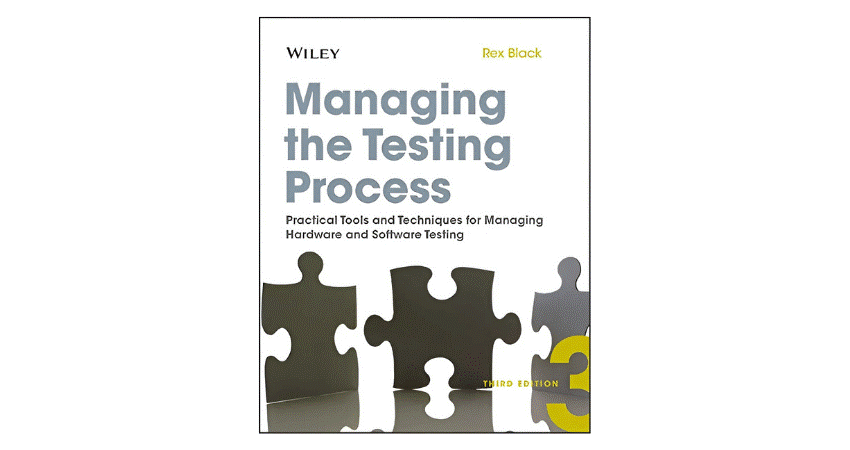
Managing the Testing Process: Practical Tools and Techniques for Managing Hardware and Software Testing (2003) by Rex Black: Published in 2003, this book is a comprehensive guide to managing the testing process in both hardware and software environments. Black covers essential topics such as test planning, execution, and reporting, providing practical tools and techniques for effective test management.
The book is particularly valuable for test managers, and team leads looking to improve their management skills and ensure successful testing outcomes. With its focus on practical application, this book remains a key resource for those responsible for overseeing the testing process.
23) Software Testing and Quality Assurance: Theory and Practice
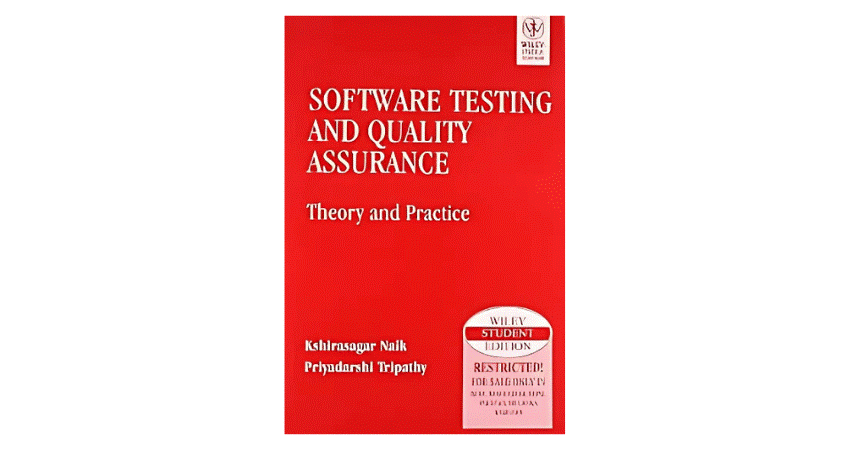
Software Testing and Quality Assurance: Theory and Practice (2008) by Kshirasagar Naik and Priyadarshi Tripathy: Published in 2008, this book provides a comprehensive overview of Software Testing and quality assurance. Naik and Tripathy cover both the theoretical and practical aspects of testing, offering insights into test design, execution, and management.
The book is well-organised and accessible, making it suitable for both novice and experienced testers. It’s particularly valuable for those looking to deepen their understanding of quality assurance principles and improve their testing practices. This book remains an essential resource for anyone involved in ensuring software quality in a systematic and effective manner.
Master Unit Testing Techniques with our expert-led Unit Testing Course and enhance your Software Development skills today!
Conclusion
Unlock the potential of your Software Testing journey with these must-read books. They offer critical insights and practical guidance for testers at every stage of their careers. Immerse yourself in their wisdom, discover new strategies, and elevate your expertise. Let these Software Testing Books pave the way for your growth in the dynamic field of Software Testing.
Expand your skills as an Automation engineer with our ISTQB Advanced Test Automation Engineer Course today!
Frequently Asked Questions
Which Software Testing is the Best?

The best Software Testing approach depends on the project's needs. A mix of manual, automated, and exploratory testing typically offers the most comprehensive coverage, ensuring software quality and reliability.
Which Type of Testing is in Demand?

Automated testing is currently in high demand, particularly for continuous integration and DevOps environments. Additionally, performance testing, security testing, and exploratory testing are also increasingly sought after in the software industry.
What are the Other Resources and Offers Provided by The Knowledge Academy?

The Knowledge Academy takes global learning to new heights, offering over 3,000 online courses across 490+ locations in 190+ countries. This expansive reach ensures accessibility and convenience for learners worldwide.
Alongside our diverse Online Course Catalogue, encompassing 19 major categories, we go the extra mile by providing a plethora of free educational Online Resources like News updates, Blogs, videos, webinars, and interview questions. Tailoring learning experiences further, professionals can maximise value with customisable Course Bundles of TKA.
What is The Knowledge Pass, and How Does it Work?

The Knowledge Academy’s Knowledge Pass, a prepaid voucher, adds another layer of flexibility, allowing course bookings over a 12-month period. Join us on a journey where education knows no bounds.
What are the Related Courses and Blogs Provided by The Knowledge Academy?

The Knowledge Academy offers various Software Testing Courses, including Automation Testing Using TestComplete Training, Manual Testing Training, Software Testing Black Belt and ISTQB Advanced Test Automation Engineer. These courses cater to different skill levels, providing comprehensive insights into Software Testing Job Roles.
Our Business Analysis Blogs cover a range of topics related to Software Testing, offering valuable resources, best practices, and industry insights. Whether you are a beginner or looking to advance your Software Testing skills, The Knowledge Academy's diverse courses and informative blogs have got you covered.
Upcoming Business Analysis Resources Batches & Dates
Date
 Software Testing Automation Course
Software Testing Automation Course
Thu 3rd Apr 2025
Thu 31st Jul 2025
Thu 6th Nov 2025






 Top Rated Course
Top Rated Course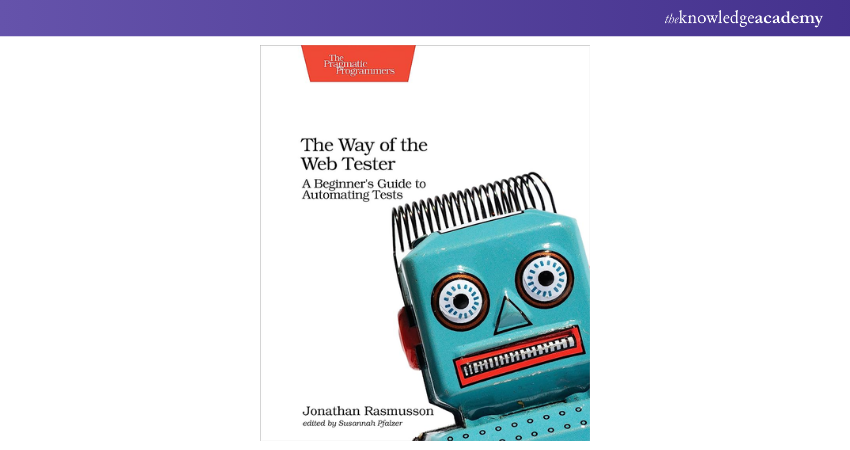



 If you wish to make any changes to your course, please
If you wish to make any changes to your course, please


